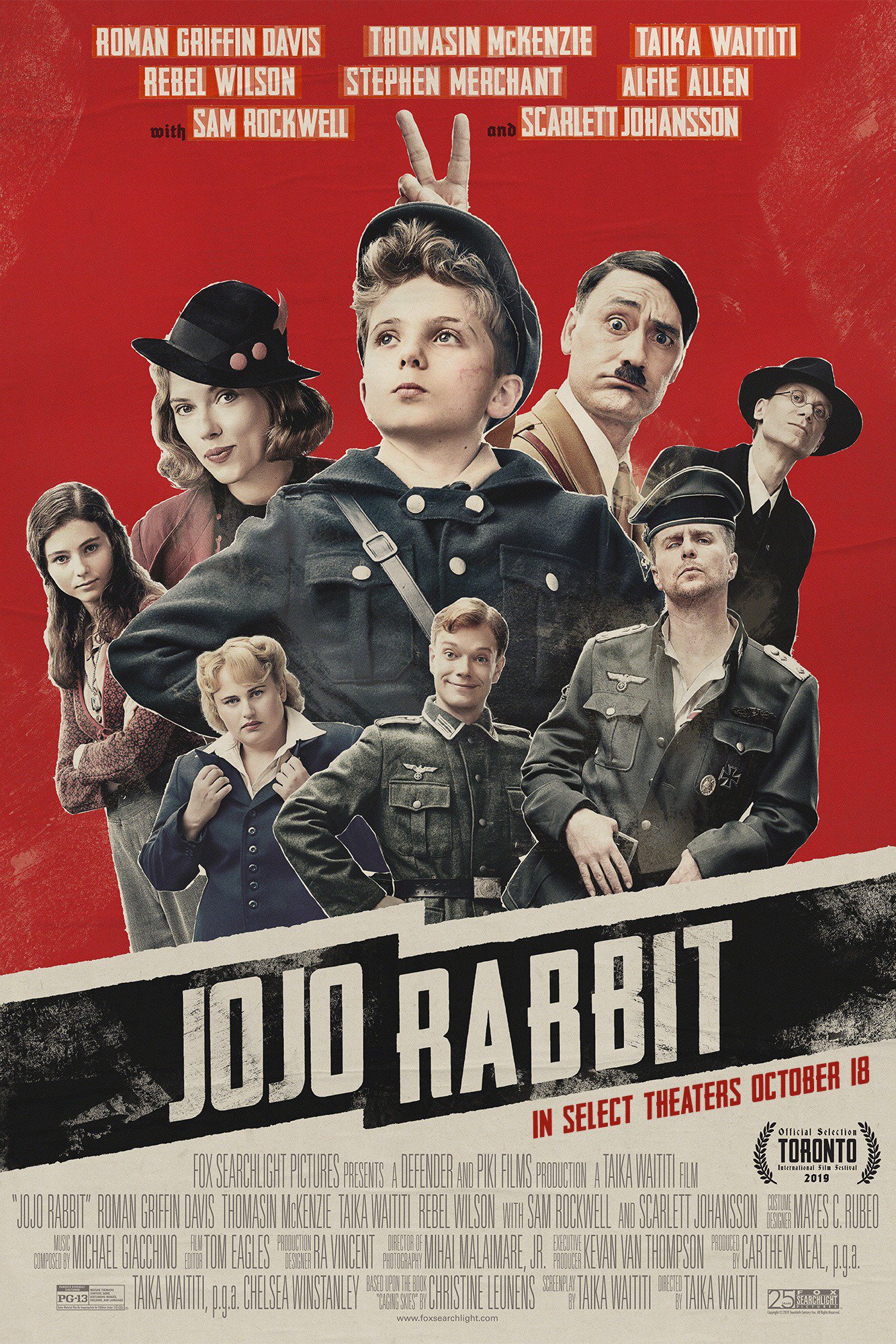Directed by: Taiki Waititi.

JoJo Rabbit is perhaps the strangest, most disconcerting of the nine nominees for Best Picture. Framed around the thought-life of a ten-year old boy in a small town in Nazi Germany, JoJo dips in and out of his imaginary world, often resting in scenes of dialogue with his imaginary friend, none other than Adolph Hitler. This Hitler, not surprisingly, is a very different one from the historical leader of the Third Reich. He flops and dances around, as a ten-year old’s dreams would have him do, sometimes being authoritative, sometimes simply a friend, and only slowly becoming threatening as JoJo begins to see him as he “really is”.
A coming-of-age story of sorts, this movie achieves a balance between the horrific and the comic in a way that I have rarely seen except from Quentin Tarantino. Tarantino’s films all center themselves, though, in alternate realities that are objectively presented. JoJo is a psychological romp through a small boy’s world, and JoJo’s fantastical innocence about Nazism, war, and, of course, Hitler himself, is disquieting to the viewer. As viewers, we know at least enough about these things not only not to romanticize them as a ten year-old, but also to react to the main character’s fantasies with the desire to correct him, even shout at him and rebuke him. One of the strongest things about the film is the part of Scarlett Johansson, who plays JoJo’s mother, and is outstanding in the role (she was also nominated for an Oscar). Never rebuking him for his fixation on wanting to be a good Nazi, she just loves him, correcting him as a good mother would, all the while quietly housing a Jewish girl behind the walls of her house without JoJo’s knowledge.
This film grows on the viewer, long after leaving the theater. It was disturbing to me, while I viewed it; after all, what can be funny about Hitler? There’s an obvious parallel to the original film version of The Producers, in which Jewish comedian Mel Brooks tells the story of a scam involving the imaginary play Springtime for Hitler. While many critics feel that Brooks succeeded at what he wanted to do in that film, and the same could be argued about JoJo Rabbit, I couldn’t stop thinking about Jewish friends and what their reaction to the foppish, silly Hitler in this film might be. But JoJo’s sympathy for the young boy in his misguided innocence, as he begins to experience both the destruction of the world he has built in his imagination and the tragic realities that were possible in the real Nazi world, wins one over as a means to explore generally the horrors of war, racism, unthinking militarism, and particularly the outrage of Hitler’s Germany.
JoJo Rabbit is an alternately sweet, funny, tragic, but always thoughtful movie about little boys, fantasy, reality, and growing up. It is as discussion-worthy as any of this year’s nominees, the heart-wrenching ending providing perhaps the richest food for thought. An amazing film.
Drew Trotter
April 14, 2020